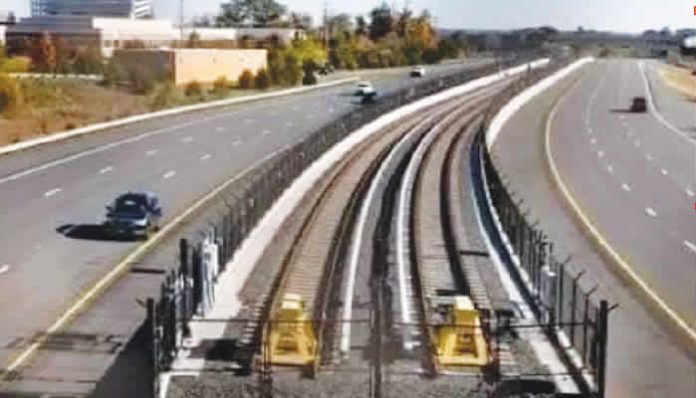The Federal Government has disbursed N15 billion out of the N18 billion earmarked for the first phase of compensation to property owners affected by demolitions along Section One of the Lagos-Calabar Coastal Highway. This development was announced during a stakeholders’ meeting in Lagos on Sunday, where government officials reassured the public of their commitment to transparency and due process.
Progress and Transparency in Compensation
The Director of Federal Highways, Bridges, and Design at the Federal Ministry of Works, Bede Obioha, confirmed that the total amount set aside for compensation had exceeded initial estimates, reflecting the government’s efforts to ensure fair settlement for affected property owners.
“For Section One, spanning 47.7km, the compensation sum already collated is over N18 billion. So far, the contractor has disbursed more than N15 billion. Work on Section Two is ongoing, and as soon as the figures are finalized, they will be made public. We have maintained transparency in every step of this process and continue to engage stakeholders,” Obioha stated.
Milestone Achievement: Highway Section Set for May Commissioning
Minister of Works, David Umahi, announced that 30km of the 70km stretch of Phase 1, Section 1, of the Lagos-Calabar Coastal Highway will be commissioned in May 2025.
“It is our target to complete and commission 30km of the first section by May 2025,” Umahi said. This aligns with the government’s broader vision of improving coastal connectivity and boosting economic activities along the corridor.
Challenges in Compensation and Legal Complexities
Despite the significant progress made, Umahi acknowledged that the compensation process has been complex and legally demanding. He emphasized that while he is committed to ensuring fair settlement, legal obligations must be strictly followed.
“I wouldn’t have been able to comment on this earlier, but now I can say that it has been a frustrating process. My hands are tied by the law. Personally, I have lost properties to similar initiatives, so I understand the concerns of those affected. However, we must abide by legal obligations. Initially, the Federal Executive Council (FEC) approved N8 billion based on the Bureau of Public Procurement’s recommendation, but the amount has now risen to N18 billion,” Umahi explained.
The minister reiterated the government’s commitment to transparency, stating, “We will publish the full list of beneficiaries, including names, property dimensions, and compensation amounts. Additionally, over 10 cases related to compensation are currently in court, and we will abide by any rulings, even taking matters to the Supreme Court if necessary to uphold democratic processes.”
Final Phase of Compensation to Be Completed in 10 Days
Umahi assured affected residents that all compensation payments for Section One would be completed within 10 days.
“I have instructed the Federal Controller of Works in Lagos, Olukorede Keisha, to ensure there are no further delays. The affected individuals need their funds to relocate, and we are prioritizing this. Within the next 10 days, 100% of the payments will be completed, as verified by our enumerators,” he confirmed.
Tax Credit Compensation for Lekki Free Trade Zone Affected Residents
In addition to the Lagos-Calabar Coastal Highway project, Umahi also addressed the issue of compensation related to the existing Lekki Free Trade Zone. He revealed that N10 billion in compensation would be paid to affected property owners in the Eleko Community by mid-March.
“We are committed to ensuring that no infrastructure is taken without adequate compensation. The tax credit granted to Dangote Group for the Lekki Free Trade Zone development includes a compensation package worth N10 billion. Payments will commence by mid-March after a final round of stakeholder engagement,” Umahi assured.
Conclusion
The Lagos-Calabar Coastal Highway project is a landmark infrastructure initiative aimed at improving transportation, boosting economic growth, and enhancing regional connectivity. While the compensation process has faced challenges, the Federal Government remains steadfast in its commitment to ensuring that all affected individuals receive their due entitlements in a transparent and timely manner.

